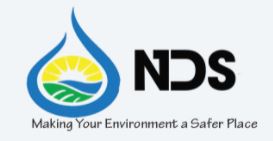With businesses of all kinds looking into how they can reopen safely for their employees and customers, a disinfecting method that cleans the air and surfaces of harmful viruses and other pathogens is having impressive results.
While the technology was created initially for use in hospitals, air disinfecting methods have been embraced recently by schools, restaurants and retail establishments for the ability to provide medical-grade solutions for continuous air and surface disinfection.
It could prove beneficial to factories, manufacturing sites and production plants where employees work in close contact or in shifts.
CASPR is an innovative “no-touch” disinfection technology that is installed easily and affordably into an existing HVAC system. It utilizes a Natural Catalytic Converter to create hydrogen peroxide out of ambient air. These oxidizing molecules then circulate facility wide to disinfect both in the air and all surfaces, including the walls and floors, ultimately reducing the spread of these harmful pathogens.
CASPR products are effective against mold, viruses, bacteria, odors, and VOCs, and the technology produces no ozone and is safe for occupied spaces. Scientific tests show that CASPR technology can inactivate 99.991% of SARS-COV2, which is the virus responsible for COVID-19.
Nick Licata of NDS, a Louisiana business that is an authorized provider of CASPR products, says he and his business partner Ryan Haggard discovered CASPR about six months before the start of the pandemic. Licata says they recognized it could be a fit for other industries besides health care. With a study at a hospital showing absenteeism down 40% after CASPR installation, Licata says, this could prove beneficial to factories, manufacturing sites and production plants where employees work in close contact or in shifts.
Previously, Licata says, his business relied on ultraviolet light or chemicals when providing disinfecting services. One of the main issues is they provide periodic cleaning, rather than continuous disinfection.
While UV robots, which are used in many medical settings, provide periodic disinfection, another drawback is everyone must leave the room while the cleaning occurs. Another common method, electrostatic spraying, requires additional labor and is subject to human error. Outside of medical establishments, restaurants and retail spaces who rely on employees to disinfect tables and common areas, may not allow the disinfecting chemicals the proper dwell time needed to kill germs, Licata says.
Businesses who have installed CASPR technology have seen improvements in company morale. “It’s being proactive instead of reactive,” Licata says. “It’s about providing that safety net that we’re doing everything we can to make sure the workplace is a safe environment.”
While COVID-19 may cease to be the threat it is today, CASPR technology will remain just as effective against flu, stomach viruses and other illnesses that were affecting the workplace previously.
“We’re going to be here after the pandemic, just like we were here before the pandemic,” Licata says. “It really is a better solution for our customers. From a cost perspective, over time, it pays for itself after installation.”
There are government financial resources that may be able to help businesses utilize these technologies for free. SBA recently revised rules for PPP utilization to include devices that affect sanitation, social distancing and worker safety.
In the latest development, CASPR Group has been given U.S. General Services Administration approval to sell its disinfectant technology to government entities such as public schools and government buildings. Now that CASPR technologies are on the GSA schedule, they will go into GSA Advantage, a site for government buyers to have access to the products without having to engage in a bidding process.




